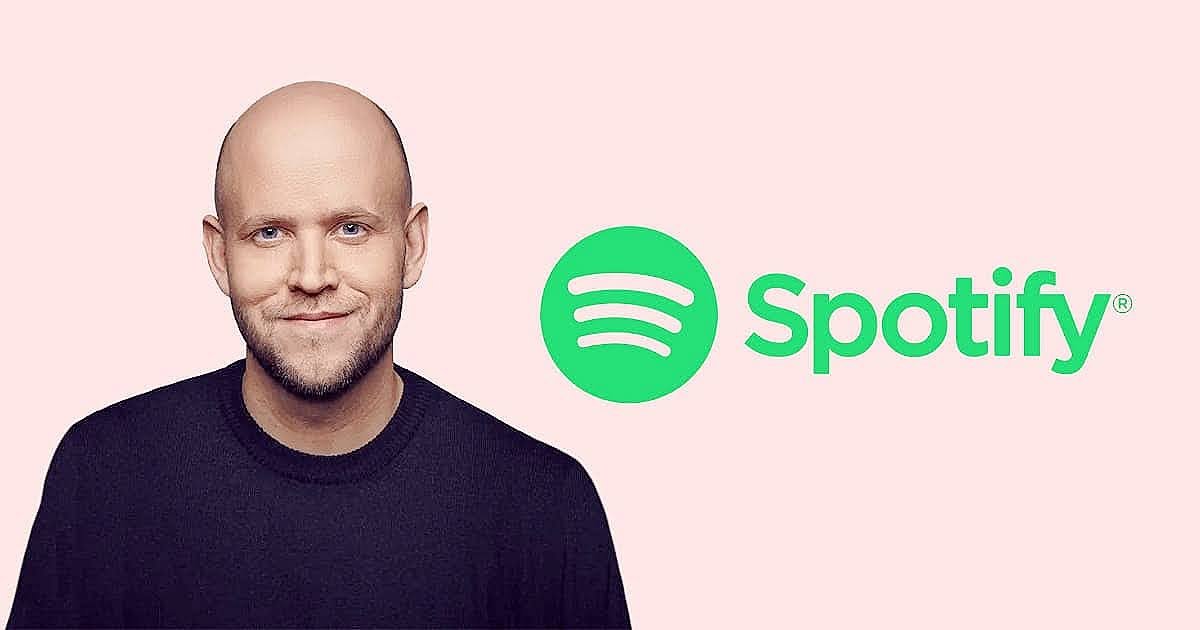Spotify co-founder Daniel Ek is relinquishing his role as CEO of the music streaming giant he helped launch in 2006, transitioning instead to executive chairman.
Stepping into the top spot will be the company’s current co-presidents, Alex Norström and Gustav Söderström, who will serve as co-CEOs starting January 1, 2026.
“I’ve dedicated two decades—basically my whole adult life—to leading Spotify as CEO,” Ek, now 42, reflects. “I’m prepared to shift from being in the game to guiding from the sidelines.”
The handover has been in the works for some time. Back in 2023, Ek elevated Norström and Söderström to co-presidents to broaden their responsibilities and build their executive skills.
“The moment feels right, and I don’t want to stand in their way,” Ek explains. “They’re fully equipped and eager for this. Together, they’re even stronger leaders than I was on my own.”
Norström and Söderström, both veterans of multiple startups, joined Spotify over ten years ago. Norström has overseen business operations, marketing, and content, while Söderström, with his engineering background, has driven the tech and product innovations. “We’re optimistic this setup will thrive,” notes Spotify board member Woody Marshall. “We’ve seen them in action at top speed, and they’re primed for the challenge.”
In his new capacity as executive chairman, Ek plans to concentrate on overarching strategy and major investments. “The goal was to leverage their operational excellence while keeping the founder-driven spirit alive,” Ek says. “I’ll handle the big-picture trajectory, strategic calls, and resource allocation. But let’s be crystal clear: they’ll be running the show as CEOs, making the day-to-day decisions.”
Ek is bowing out amid a wave of success for Spotify. In the past year, the company’s stock has doubled, far outpacing the S&P 500’s 16% rise.
With a market value exceeding $150 billion and shares near record highs, Ek’s wealth—built from his roots as a dropout from Stockholm’s tough Ragsved area—stands at an estimated $10.3 billion, per Forbes calculations.
Spotify now delivers about 100 million tracks to almost 700 million users monthly, including 276 million paid subscribers. Revenue hit $18.36 billion in 2024.
The platform has played a pivotal role in resuscitating the music sector, which had been ravaged by piracy. When Spotify entered the U.S. in 2011, global recorded music revenues sat at roughly $15 billion—a sharp drop from $24 billion a decade prior.
By 2025, that figure has climbed to nearly $30 billion, with streaming contributing $20 billion. Spotify funnels 70% of its earnings back to artists and labels, distributing $10 billion in 2024 alone.
Looking ahead, Norström and Söderström plan to boost user growth and sales, particularly in burgeoning markets like Africa and Asia. “We’ve reached 3% of the global population as subscribers,” Norström observes. “It’s feasible to envision hitting 10% or even 15%.”
Söderström sees AI as a game-changer for music consumption, akin to the smartphone revolution. “Expect shifts in how users engage, opening doors to fresh formats and distribution channels.”
Ek’s decision aligns with his growing interests outside music. In 2021, alongside former Spotify exec Shakil Khan, he established Prima Materia, a $1 billion holding firm focused on bold European tech ventures. “We build companies in spaces where standard VCs hesitate—due to risks, timelines, or sectors,” Ek describes.
An early venture was Neko, a health tech firm started through Prima Materia in 2018. After seven years developing rapid diagnostics for skin cancer and heart issues, Neko secured a $260 million Series B in January 2025 from investors like Lightspeed, General Catalyst, Lakestar, and Atomico, valuing it at $1.8 billion—Ek’s second unicorn.
Ek has also ventured into defense tech, chairing German firm Helsing. Originally an AI software outfit for military data analysis, it now produces AI-driven drones and subs, positioning itself as Europe’s answer to Anduril. Prima Materia spearheaded a €600 million round in July 2025. (This has sparked some artist backlash, with threats to exit Spotify, though few followed through.)
“Investing in Helsing was crucial for Europe’s security, especially aiding Ukraine’s defense—something traditional VCs shied away from,” Ek notes. “These are the tough challenges I want to tackle.”
Ek has always charted his own course in music. As a teenager, he left Sweden’s Royal Institute of Technology for ad tech firm Tradedoubler, where he sold analytics software for $2 million. That windfall led to a brief lavish phase—a Stockholm apartment, Ferrari, and clubbing—before burnout hit. He sold the car, isolated in a cabin to play guitar and reflect, even considering a music career.
During this period, he connected with Tradedoubler chair Martin Lorentzon, another affluent seeker of purpose. In 2006, they co-founded Spotify to mend the piracy-plagued music landscape.
At the time, CDs were fading, piracy rampant, and iTunes pushing à la carte purchases with hefty cuts. Revenues had halved. Ek and Lorentzon crafted a superior alternative: ad-free premiums and free tiers, optimized for mobiles and social platforms. Spotify exploded.
In 2018, Ek opted for a direct listing IPO—no bankers, no new shares, market-driven pricing. Shares have since risen 350%.
Lately, Spotify has diversified into podcasts, audiobooks, news, and education, acquiring entities like Gimlet, Parcast, and The Ringer, plus big-name deals with Joe Rogan and Alex Cooper. “Audio’s potential is underrated—it could be a hundreds-of-billions industry,” Ek said in 2021. “We’re positioned to dominate it.”
With Norström and Söderström at the wheel, Ek remains driven. “Spotify wasn’t about chasing a hot market; it was problem-solving,” he says. “That’s my passion, and the world has no shortage of issues to address.”

